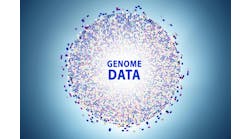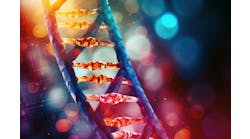Joshua Denny, M.D., M.S., a professor in the Departments of Biomedical Informatics and Medicine at Vanderbilt University Medical Center in Nashville, Tenn., has been named chief executive officer of the National Institutes of Health’s All of Us Research Program. As CEO,
NIH said Denny would oversee its efforts to build one of the largest and most comprehensive precision medicine research platforms in the world, in partnership with a diverse network of awardees and participants.
Denny has been involved in All of Us from its inception, first as a member of the Advisory Committee to the NIH Director Precision Medicine Initiative Working Group, which developed the program’s scientific blueprint. He led the program’s initial prototyping project and is currently the principal investigator for the All of Us Data and Research Center.
Denny will succeed Eric Dishman, who will become chief innovation officer, creating a pipeline to support rapid delivery of exploratory projects for future development.
Denny brings expertise in bioinformatics, genomics and internal medicine, and significant prior experience with other large research efforts, including the Electronic Medical Records and Genomics (eMERGE) Network, the Pharmacogenomics Research Network (PGRN), and the Implementing Genomics in Practice (IGNITE) Network. He is an elected member of the National Academy of Medicine, the American College of Medical Informatics, and the American Society for Clinical Investigation.
All of Us Deputy Director Stephanie Devaney, Ph.D., is being promoted to chief operating officer, a new position in which she will assume additional responsibilities in leading the operations of the program and its consortium of awardees and other partners. She also will continue to oversee the program’s policy work, serving as principal liaison to the Institutional Review Board and Trans-NIH Liaisons Coordinating Team.
Currently the program has more than 300,000 people enrolled, and recruitment will continue to reach the goal of at least one million participants. Additional genotype, electronic health record, wearable sensor, and environmental exposure data will be added to the longitudinal dataset.

